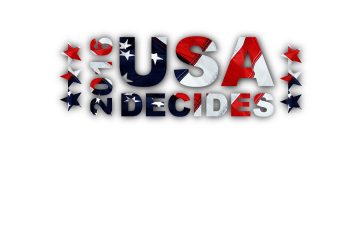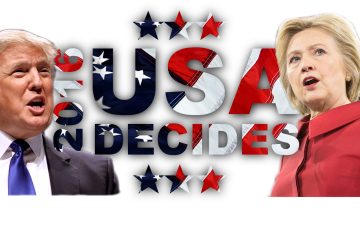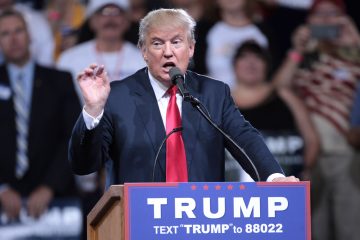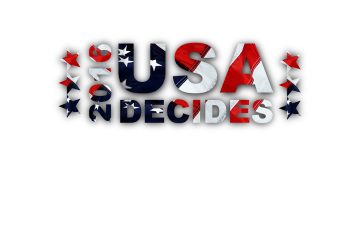
How we correctly predicted a Trump victory
The US election result came as an absolute shock to many, but it was the pollsters that took the biggest hit. The major poll-based forecasts, a lot of models, the prediction markets, even the superforecaster crowd all got it wrong. They estimated high probabilities for a Clinton victory, even though some were more careful than others in claiming that the race would be very tight. Our prediction survey, however, was spot on thanks to the method we used for Oraclum Intelligence Systems, a start-up developed out of our academic work. We predicted a Trump victory, and we called all the major swing states in his favour: Pennsylvania (which no single pollster gave to him), Florida, North Carolina, and Ohio. We gave Virginia, Nevada, Colorado, and …

A political earthquake with few US precedents
The election of Donald Trump is a political earthquake with few direct precedents. Andrew Jackson’s election as a populist in 1832 is one possibility. As a novice to elected office, President Eisenhower’s election in 1952 has that in common but little else. Ideologically, Trump’s radical reforms permit a loose analogy with Ronald Reagan’s agenda in 1980, but President Reagan was an outward-looking and internationally engaged White House incumbent. Trump is decidedly inward looking and isolationist. His conversion into a normal presidential candidate has been remarkable. Trump’s intelligence and knowledge of the world of social media and TV entertainment gave him a major advantage during the Republican presidential primaries and then the election campaign. Both in the state primary appearances and …

What to make of the US Election Forecasts
The majority of forecasts point to Hilary Clinton winning tomorrow’s US presidential election. Several of the poll, market and expert forecasts with probabilities for who will win are helpfully summarised by the New York Times here. The polls-based predictions are all, apart from one, pretty confident that Clinton will win. At the time of writing, Drew Linzer’s model at Daily Kos puts the probability of a Clinton win at 87%, HuffPost has 98% and Sam Wang at the Princeton Election Consortium estimate is as high as 99%. The New York Times’ own model is slightly less confident, on 84%. The exception is Nate Silver’s FiveThirtyEight model which puts Clinton’s chances at just 67%. The lower probability for Clinton in the FiveThirtyEight model …

America’s Other Vote: Cannabis Legalisation on the Ballot
Casual observers and the millions who have tuned in to watch the Presidential debates might be unaware of the other important vote taking place tomorrow: cannabis legalisation. While the omission of any question on climate change during the three Presidential debates garnered widespread attention, the legislation of this soft drug was the second major absentee in the televised clash between Hilary Clinton and Donald Trump. On November 8th, US citizens will not only elect a new President; initiatives to legalise recreational cannabis are also on the ballot in five states. There is a good chance that disappointed Trump or Clinton supporters will be able to drown their sorrows with legal marijuana in California, Nevada, Massachusetts, Arizona and Maine. The map …

Trumped-up vs. Clintonesque: what text analysis can teach us about the US elections
The 2016 United States presidential election—or in John Oliver’s most recent definition: ‘lice-on-a-rat-on-a-horse-corpse-on-fire-2016’—has reached its final leg. As a political scientist and a computational text analyst, I cannot resist sharing my two cents on an election that has certainly broken a model or two. Following in the footsteps of two colleagues who recently produced two excellent articles (you can read them here and here), in this post I’d like to analyse a few examples of the exceptional language used in this elections cycle. Text analysis can help us understand two commonly held beliefs or facts (the distinction has become a bit blurred over the course of this year’s election cycle) about the US elections: Donald Trump is running a negative …

Words that matter: What text analysis can tell us about the third presidential debate
The final Presidential debate of 2016 was as heated as the previous two—well demonstrated by the following name-calling exchange: CLINTON: …[Putin would] rather have a puppet as president of the United States. TRUMP: No puppet. No puppet. CLINTON: And it’s pretty clear… TRUMP: You’re the puppet! CLINTON: It’s pretty clear you won’t admit … TRUMP: No, you’re the puppet. It is easy to form our opinions of the debate and on the differences between the Presidential candidates on excerpts like this and memorable one-liners. But are small extracts representative of the debate as a whole? Moreover, how can we objectively analyse what was said, who got to say the most, and how the candidates differed in their responses? One approach is …

How voter turnout could put Trump in the White House
I recently spent a month travelling in the US and the word on the street is that Donald Trump could be the next president. Before the EU referendum earlier this year, I wrote about public opinion in the UK. At the time, most political pundits were predicting a remain result but there was a noticeable public sentiment to leave. Something similar is happening in the lead up to the US presidential election. While many political commentators still find it difficult to accept that Trump is a contender, many of the people whom I met on my road trip expect him to win. Of course, given voting is not compulsory in the US, voter turnout will have a big influence on the result. …

The Final Hundred Days: Conventions, Questions, and Conclusions
Fewer than 100 days. That is all that remains in what will, perhaps, go down as the most unpredictable American presidential election in at least a century. The candidates—Democrat Hillary Clinton and Republican Donald Trump—are the two most disfavored and distrusted aspirants for the office ever nominated by a major American political party. And yet, here they stand. An article I wrote in March attempted to forecast how Hillary Clinton’s campaign would seek to ‘win the narrative game’ by defining the election as a choice between unity and division, love versus hate, hope over fear, and the like. By any objective comparison of the 2016 Republican and Democratic National Conventions, it seems that Mrs Clinton and the Democrats are well …









